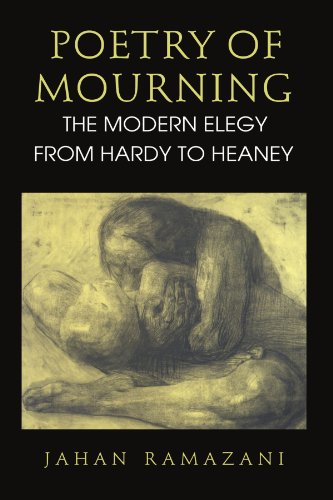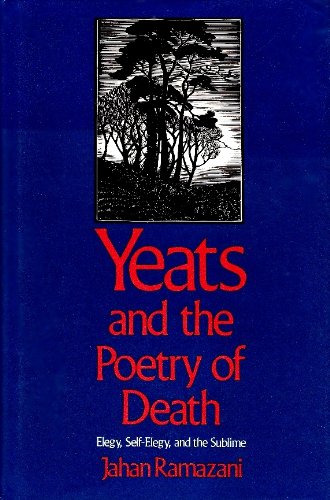Background
Ramazani, Jahan was born on February 17, 1960 in Charlottesville, Virginia, United States. Son of Rouhollah Karegar and Nesta (Shahrokh) Ramazani.


( Called the "mother of beauty" by Wallace Stevens, death...)
Called the "mother of beauty" by Wallace Stevens, death has been perhaps the favorite muse of modern poets. From Langston Hughes's lynch poems to Sylvia Plath's father elegies, modern poetry has tried to find a language of mourning in an age of mass death, religious doubt, and forgotten ritual. For this reason, Jahan Ramazani argues, the elegy, one of the most ancient of poetic genres, has remained one of the most vital to modern poets. Through subtle readings of elegies, self-elegies, war poems, and the blues, Ramazani greatly enriches our critical understanding of a wide range of poets, including Thomas Hardy, Wilfred Owen, Wallace Stevens, Langston Hughes, W. H. Auden, Sylvia Plath, and Seamus Heaney. He also interprets the signal contributions to the American family elegy of Robert Lowell, Allen Ginsberg, Anne Sexton, John Berryman, Adrienne Rich, Michael Harper, and Amy Clampitt. Finally, he suggests analogies between the elegy and other kinds of contemporary mourning art—in particular, the AIDS Memorial Quilt and the Vietnam Veterans Memorial. Grounded in genre theory and in the psychoanalysis of mourning, Ramazani's readings also draw on various historical, formal, and feminist critical approaches. This book will be of interest to anyone concerned with the psychology of mourning or the history of modern poetry. "Consists of full, intelligent and lucid exposition and close reading. . . . Poetry of Mourning is itself a welcome contribution to modern poetry's search for a 'resonant yet credible vocabulary of grief in our time."—Times Literary Supplement
http://www.amazon.com/gp/product/0226703401/?tag=2022091-20

("Man has created death", wrote Yeats, and in this book Ja...)
"Man has created death", wrote Yeats, and in this book Jahan Ramazani argues that the effort to create and recreate death is the major impulse of Yeats' poetry. According to Ramazani, death was Yeats' muse, and his best poems are his vexed meditations on loss, ruin, and oblivion. Ramazanu reviews Yeats' elegies, his self-elegies, and his poems in the sublime mode, as well as his work in such related modes as love lyric and prophecy, carpe diem and the curse. Balancing genre criticism with close revisionist readings of individual poems, he traces interrelations between the lyrics and the traditions that inspired them. Ramazani interprets the psychological, ontological, and rhetorical patterns and intricacies of the poet's responses to the "great night". He analyzes Yeats' contributions to the Romantic and modern poetry of death by drawing on a variety of theorists, including Freud and Heidegger, Levi-Strauss and Blanchot, Adorno and de Man.
http://www.amazon.com/gp/product/0300048041/?tag=2022091-20
Ramazani, Jahan was born on February 17, 1960 in Charlottesville, Virginia, United States. Son of Rouhollah Karegar and Nesta (Shahrokh) Ramazani.
Bachelor, University of Virginia, 1981; Master of Philosophy, University of Oxford, 1983; Master of Philosophy, Yale University, 1986; Doctor of Philosophy, Yale University, 1988.
Assistant Professor of English, University of Virginia, Charlottesville, 1988-1994; professor, University of Virginia, Charlottesville, since 1994.
("Man has created death", wrote Yeats, and in this book Ja...)
( Called the "mother of beauty" by Wallace Stevens, death...)
(Brand New. In Stock. Will be shipped from US. Excellent C...)
(New copy. Fast shipping. Will be shipped from US.)
Member Modern Language Association, Raven Society.
